If your training project kick-off meetings often end in confusion and crossed wires, it’s time to switch things up.
Your kick-off session is the most important meeting in the project. So, if you’re finding yourself sending countless follow-up emails to clarify certain points or if foreseeable issues are cropping up halfway through the project, chances are you need to reformat how you’re running the kick-off meeting itself.
Make sure you’re including these eight questions or discussion points in your kick-off meeting to ensure a smooth transition into the development phase of your project.
1. What will participants be able to do after the course?
When it comes to writing your learning objectives, selecting content, duration, and assessment, it is critical that you understand the ultimate goal of the project.
Part of this question also includes understanding where the learning audience currently sits in the skill/knowledge profile. Are you designing a course for beginners? Or a refresher course for an experienced team?
So, other questions to ask here include:
- What specific skills or knowledge do we want learners to acquire?
- What should they be able to do after the course that they couldn’t do before?
- What can they do already in relation to this skill/knowledge?
2. What raw materials will be needed for the course?
Before you can start storyboarding the course and selecting content types, you need to know what volume of raw material you’ll be working with.
While your subject matter experts (SMEs) should be established before kick-off if possible, you also need to know the following about your raw material:
- What is the volume?
- How complex is the topic?
- What’s the beginning and end point of the knowledge we’re trying to impart?
Many SMEs will try to fill a course with everything and anything they know on a topic. It’s your job to establish during kick-off the goals of the course, how the raw material relates to it, and provide guidance to your SMEs on what can realistically be included in the course. Check out more tips for managing SMEs with this practical toolkit.

3. What’s the approval flow and who has the final say?
Developing a new course is never a totally linear process. There are many points along the way where the team will need to come together to review and approve content, flow, and other decisions.
At the kick-off, it’s essential to establish who will be approving what and who has the final say over the finished product.
4. Who is the key champion of the course rollout?
Even though the rollout of your course might feel like a faraway goal from the start line, it’s important to establish roles and responsibilities right up to the finish line. One of those principal roles is who will be chiefly responsible for rolling out and promoting the course to learners.
This person will also be a touchpoint for questions and concerns from learners and a facilitator of communication between learners and the L&D department or IT if there are technical issues. A good example would be a departmental manager who has the sway to encourage maximum engagement with the new course.
5. What are the key steps and milestones in the development process?
This is a great moment to educate stakeholders who are new to your processes on how the course will be developed, what are the key milestones and deliverables to expect, and how the team works together.
For example, if you follow an Agile Learning methodology, you’ll need to explain how the development, review, and testing cycles work for your SMEs and stakeholders.

6. What will the finished product look like?
It’s absolutely crucial to set expectations during kick-off about what is feasible for the team to develop. It’s especially important to explain this to the non-instructional designers in the room. For example, you don’t want someone to pipe up halfway through the project with an idea for a 30 minute video to be included in the course. Or to start requesting content that has little or nothing to do with the learning objective.
So, taking the time to explain what “good” elearning looks like will help set the tone for discussions that may come up further down the line about decisions you have made with regard to the look, structure, and content of the course.
7. What’s the project plan?
Keeping everyone on the same page can be a constant battle during a training project, so now is a good moment to discuss:
- Timeline, deliverables, and milestones
- Project documentation
- Communication channels
- Anything else the team needs to be aligned on in order to make good progress
By having this information to hand and distributing documentation explaining the plan, you’ll keep the entire team much better aligned throughout the project.
8. How will progress be tracked?
We all begin our projects with great intentions, but those intentions are not enough to keep on top of deadlines and make sure the course goes out as planned.
Use the kick-off meeting to discuss the project timeline and each deadline. Allow the team to voice concerns and adjust it as needed. Establish how and where everything will be tracked so that project progress is transparent for the whole team.
Want to learn more about training project kick-off, stakeholder management, and how to stay on budget? Check out this on-demand webinar recording with award-winning eLearning designer, Tim Slade.
An Expert’s Secret Formula for Keeping eLearning Projects on Track and on Budget




